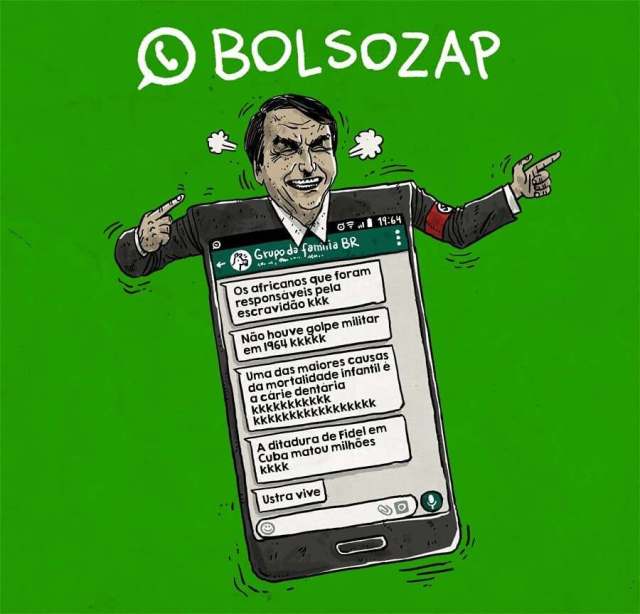
As we learned before Brazil has taken advantage of the misinformation spread through mobile phones and other online services in order to affect the integrity of their elections. When we look at the election between Jair Bolsonaro, a significantly far right candidate and Fernando Haddad is significantly left candidate in 2018 we see an election that has been riddled with misinformation not only spread directly by the politicians themselves particularly Bolsonaro but general misinformation spread. WhatsApp, a popular texting app used by over 120 Brazilians contained many political messages that were misleading. In fact a study of 100,000 words as images shared in Brazil found that more than half of them contained misleading or flatly false information. As WhatsApp vouched to protect the truth and delete the spam accounts, they still face the roadblocks that are native to what the app does.

Unlike other social media sharing’s WhatsApp is a texting service, which means that the message is shared are fully encrypted and cannot be screened by WhatsApp or Facebook to see if the information is true. even when people come in and try and fact check , there is pushback due to the mistrust of large corporations. This is also aided by the fact that because it is more personal people tend to trust the information, they see on WhatsApp more than on Facebook or Instagram or another social media website. Bolsonaro ended up being victorious with a 55% swing of the vote. as protesters took to the streets to protest his misogynistic and racist views, They kept in mind how lies spread through WhatsApp strongly affected the outcome of the election.

It’s also important to note that as cell phone usage has completely increased in Brazil it is still not something universally owned. According to Pew Research about 60% of Brazilians have access to a smartphone which is certainly good compared to other emerging economies. for context a slightly over half of Mexicans have access to a smartphone. Regardless, the cell phone usage in Brazil played a key role in swing a lot of voters on Bolsonaro and he was and Haddad and who he was.
Sources: